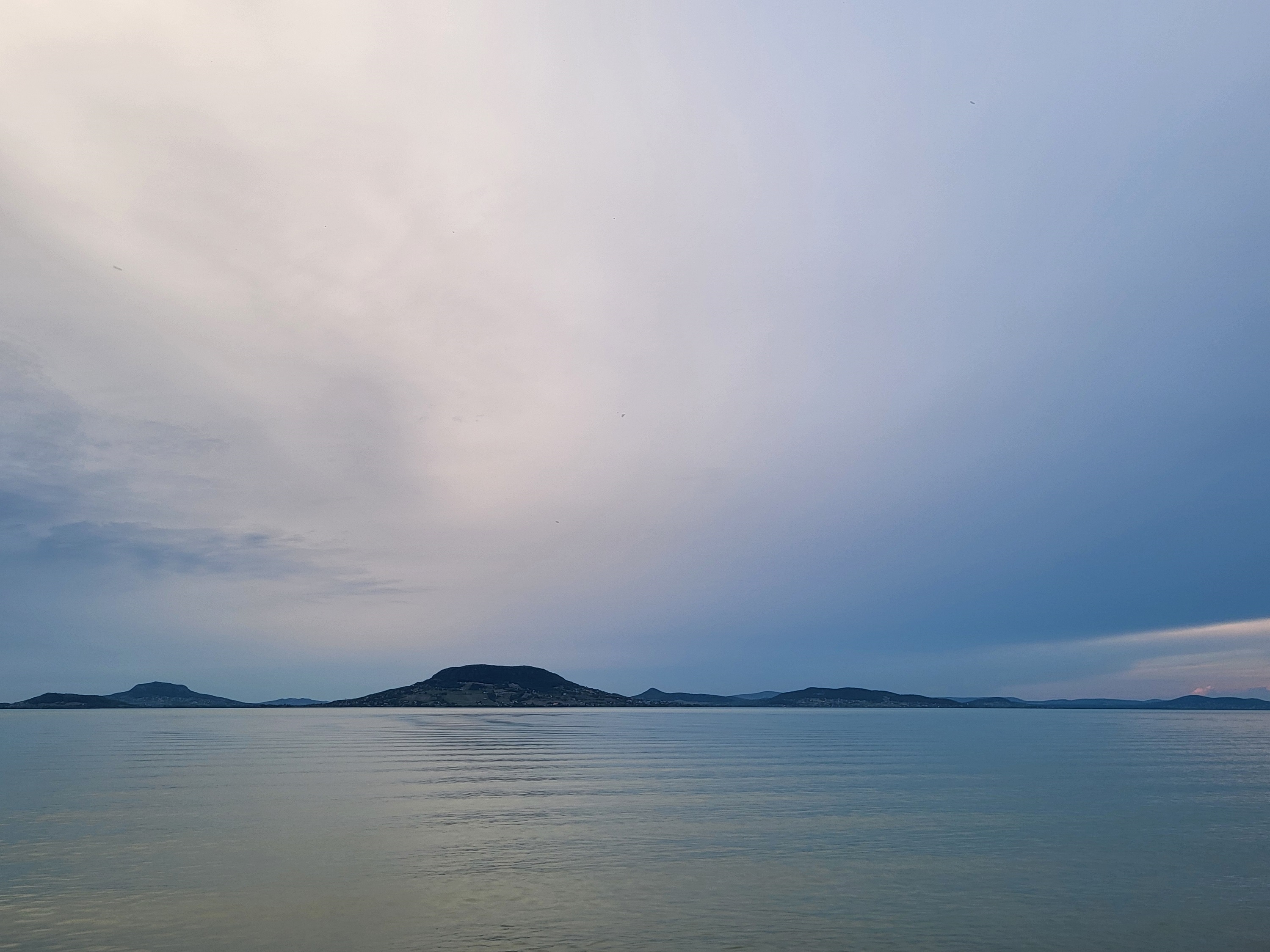.
Europe
Germany
16.06.2025 Over the weekend, social media posts alleged that a German A400M tanker was visible on flight tracking websites when it accidentally activated its transponder over Jordan during suspected refueling operations with Israeli fighter jets. The aircraft's transponder then went offline shortly after. The Defense Ministry dismisses social media claims that German aircraft refueled Israeli fighter jets over Jordan. (Source: Anadolu Agency - Turkey)
Russia,
15 June 2025, 8:45pm In the wake of the Israeli strikes, Putin was the only world leader to speak by phone to Netanyahu, Iranian President Pezeshkian and Trump. Years of two-track diplomacy have allowed Putin to position himself both as a friend to Israel’s Prime Minister and to the Iranian leadership. That will make Russia an indispensable partner for the US once it embarks on the long process of patching up the new political realities of the Middle East in the wake of this war. Though Israeli planes have so far carefully avoided striking Iran’s oil export infrastructure, the war has inevitably spooked markets and boosted sagging crude oil prices – and with them, Putin’s war chest. Back in the 1990s, Moscow helped Iran build its first Shehab long-range ballistic missiles and constructed Iran’s first civilian nuclear reactor at Bushehr, which became operational in 2013. Russia and Iran pooled efforts to shore up Assad’s government in Syria, with Russia deploying warplanes in 2015. Moscow also supplied S-300 air defence missile systems and has been importing thousands of Shahed drones, which it has fired at Ukraine. At the same time, Moscow was a signatory of the US-brokered Iran nuclear deal in 2015, which was scrapped by Trump two years later. This year, Moscow has offered to handle the enrichment of Iran’s nuclear fuel as part of a possible updated nuclear deal. That arrangement could allow Iran to maintain a civilian nuclear energy programme while depriving it of any excuse to enrich uranium to weapons-grade. Russia was selling Iran advanced Su-35 fighter jets that might be a match for Israeli jets in the air. Israeli warplanes have reportedly blown up Iran’s Shahed drone factory in Isfahan just days after Ukrainian long-range drones damaged Russia’s plant for producing their own Shahed clones, known as Geran, in Yelabuga. In the immediate aftermath of Israel’s attack, oil prices jumped from under $60 to $75 a barrel as nervous traders feared disruption to Iran’s ability to export crude. But it soon emerged that Israeli warplanes had not hit key infrastructure at the biggest Iranian oil terminal at Kharg Island, and traffic in the Strait of Hormuz at the mouth of the Persian Gulf appeared normal. Instead, Israel attacked Iran’s domestic energy industry, including gas processing plants and petrol depots across the country – perhaps in an effort to spark price hikes that have spurred anti-regime protests in the past. Washington will be urging Israel to hold off attacking Kharg ’to avoid catastrophic damage to the economy of Iran’s main customer’, China. At the same time, Israel is keeping the option of escalating against oil infrastructure as it negotiates with both enemies and allies. Kremlin was facing the prospect of falling oil prices pushing up deficits and stretching budgets. And with every new conflict - especially a major Middle Eastern conflagration - the importance of the Ukraine war to the West fades a little. ’A war between Israel and Iran will help the Russian army’s success in Ukraine.’ tweeted Kremlin-aligned analyst Markov. And the more opportunity Putin has to leverage Russia’s diplomatic weight and help Washington and Beijing solve the world’s problems, the further he moves away from being a warmonger and towards his coveted role as senior international statesman. Has he always had the devil’s own luck? Washington now faces a multi-dimensional challenge as it simultaneously tries to prevent a global oil price shock, ’a bilateral war between Iran and Saudi Arabia’, and blowback against US military and civilian targets by Iranian agents or proxies. (Source: The Spectator - United Kingdom)
by Matthews, the author of Overreach: The Inside Story of Putin’s war on Ukraine.
June 16, 2025 Overnight, on June 11, Russia launched 85 drones, 40 of which Ukraine intercepted. Kyiv targeted a gunpowder plant known to be a major supplier of explosives to the Russian military in Kotovsk, Tambov Oblast, located approximately 550 km northeast of Kharkiv. Russia has maintained that the strike resulted in no casualties. Ukraine also attacked a factory in Shebekino, Belgorod Oblast. (Source: The National Interest - U.S.)
June 16, 2025 Before 2014, Russia contributed to the modernization of China’s armed forces by selling various types of weaponry, while Beijing was a lucrative market for Russia’s military-industrial complex. The annexation of Crimea left Russia with China as the sole remaining major source of much-needed imported military technology and components. In exchange, China has received access to advanced Russian missile, air defense, and electronic warfare technology. Deepening cooperation has also been demonstrated by the growing frequency of joint military exercises. While Russia and China share a strong anti-US stance, Beijing is unwilling making any commitment to Russia that would lead to an open conflict with the West or the introduction of sanctions. Beijing refuse to officially recognize any Russian territorial gains since 2014. Limited trust is also reflected in the joint Russian-Sino military exercises, as these maneuvers are more about demonstrating the will of cooperation to the outside world than improving interoperability between Russian and Chinese armed forces. While military cooperation along shared interests will continue, it is extremely unlikely that it will develop into any functioning, institutionalized alliance. (Source: Center for European Policy Analysis - U.S.)
United Kingdom
16.06.2025 UK government sidesteps questions on possible evacuation plans for Britons in Israel. The Foreign Office is currently advising against all travel to Israel. with Israeli airspace now closed due to the conflict, those already in the country are facing increasing difficulties returning to the UK. ((Source: Anadolu Agency - Turkey)
Asia
Iran
16 June 2025, 7:02am The war may be a huge event for diplomats, for military strategists, and for the fate of the region. The markets don’t care much about Israel and Iran, investors, at least for now, appear indifferent They are assuming that Israel has already won. We rely far less on Middle Eastern oil and gas than we used to. Fracking has turned the United States into the largest oil and gas producer in the world, and there is plenty more to be developed. Even the Canadian prime minister Mark Carney, a fierce opponent of fossil fuels when he ran the Bank of England, is increasing production. At the same time, green energy may be more expensive than its champions predicted, and may require bigger subsidies, but there is starting to be a lot of it. The wind turbines in the North Sea generate 30 per cent of the UK’s electricity. In Spain solar contributes 20 per cent of the total, while wind contributes another 20 per cent. The result? Investors have other things to worry about. (Source: The Spectator – United Kingdom)
by Lynn, a financial columnist and author of ‘Bust: Greece, The Euro and The Sovereign Debt Crisis’ and ‘The Long Depression: The Slump of 2008 to 2031’
(Monday), Jun 16, 2025 The Iranian death toll in four days of Israeli strikes had reached at least 224, with 90% of the casualties reported to be civilians, an Iranian health ministry spokesperson said, adding that more than 1,200 had been wounded. Iranian media said an Israeli strike hit police headquarters in the city center on Sunday. The intelligence chief of Iran's Revolutionary Guard, Kazemi, and his deputy were killed in attacks on Tehran on Sunday, Iran's semi-official Tasnim news agency said. (Source: The Japan Times / Reuters (United Kingdom), AFP (France), JIJI (Japan)
Israel
Jun 16, 2025 Israel has multilayered air defenses against hundreds of Iranian ballistic missiles and suicide drones fired at Israel since Friday. An Israeli military official said Saturday that the defensive umbrella had an "80 or 90% success rate," meaning that some Iranian missiles were breaking through the shield. Israeli combat helicopters and fighter jets have fired air-to-air missiles to destroy drones that were heading to Israel, military officials have said. The long-range Arrow-2 and Arrow-3 interceptors, developed by Israel are designed to engage incoming targets both in and outside the atmosphere respectively. They operate at an altitude that allows for safe dispersal of any nonconventional warheads. State-owned Israel Aerospace Industries is the project's main contractor while Boeing is involved in producing the interceptors. The midrange David's Sling system is designed to shoot down ballistic missiles fired from 100 kilometers to 200 kilometers away. Developed and manufactured jointly by Israel's state-owned Rafael Advanced Defense Systems and RTX, a U.S. company previously known as Raytheon, it is also designed to intercept aircraft, drones and cruise missiles. Developed by Rafael Advanced Defense Systems with U.S. backing, the short-range Iron Dome air defense system was built to intercept the kind of rockets fired by Palestinian Islamist movement Hamas in Gaza. It became operational in 2011. Iron Dome was originally billed as providing city coverage against rockets with ranges of between 4 km and 70 km, but experts say this has since been expanded. Each truck-towed unit fires radar-guided missiles to blow up short-range threats such as rockets, mortars and drones in midair. A naval version, to protect ships and sea-based assets, was deployed in 2017. The system determines whether a rocket is on course to hit a populated area. If not, the rocket is ignored and allowed to land harmlessly. Last October, the U.S. military said that it had sent the advanced Terminal High Altitude Area Defense (THAAD) anti-missile system to Israel. THAAD is designed to intercept and destroy short, medium and intermediate-range ballistic missile threats in their terminal phase of flight. The U.S. military helped to shoot down Iranian missiles fired at Israel on Friday, using ground-based systems, one U.S. official said. A U.S. Navy destroyer in the Eastern Mediterranean also helped to shoot down incoming ballistic missiles, Israeli media has reported. Jordan’s air force also intercepted missiles and drones entering its airspace Friday, its state news agency said. (Source: The Japan Times / Reuters - United Kingdom)
Jun 16, 2025 Iranian missiles struck Israel's Tel Aviv and the port city of Haifa today, destroying homes. The alerts came in shortly after 4 a.m.in Tel Aviv. Video footage showed several missiles over Tel Aviv and explosions could be heard there and over Jerusalem. The predawn missiles struck near Shuk HaCarmel, a popular market in Tel Aviv. A residential street in nearby Petach Tikva and a school in ultra-Orthodox Jewish city Bnei Brak were also hit. Several residential buildings in a densely populated neighborhood of Tel Aviv were destroyed in a strike that blew out the windows of hotels and other nearby homes just a few hundred meters from a U.S. Embassy premises in the city. Israel's national emergency service said three people were killed in the country's center, while dozens more were wounded in the overnight strikes. In Haifa around 30 people were wounded. Fires were seen burning at a power plant near the port. Iran's Revolutionary Guard said the latest attack employed a new method that caused Israel's multilayered defense systems to target each other. (Source: The Japan Times / Reuters (United Kingdom), AFP (France), JIJI (Japan)
Jun 16, 2025 10:42 IST Israeli Prime Minister Benjamin Netanyahu claimed that Iran's Islamic regime had plotted to assassinate US President Trump, labelling him as enemy number one. (Source: India Today)
Pakistan
Jun 16, 2025 12:20 IST ’Pakistan has told us that if Israel uses a nuclear bomb on Iran, then Pakistan will also attack Israel with a nuclear bomb,’ General Rezaei, an IRGC commander and member of Iran's National Security Council, said on Iranian state television. Pakistan’s Defence Minister Asif dismissed the claim, saying Islamabad had made no such commitment. Later in a post on X, Asif cautioned that Israel’s undeclared nuclear arsenal, amid the current volatile situation, could embolden it to act more aggressively - raising the risk of a wider regional conflict. Islamabad has expressed open support for Iran in the broader confrontation with Israel. Following the attack on Tehran, Pakistan had vowed to stand behind Iran, calling for Muslim unity against Israel, a Jewish country. On June 14, Asif told the National Assembly that Muslim nations should unite against Israel or risk meeting the same fate as Iran and Palestine. ’Israel has targeted Iran, Yemen, and Palestine. If Muslim nations don't unite now, each will face the same fate,’ Turkiye Today quoted him as saying. Asif also urged Muslim nations with diplomatic ties to Israel to sever relations and called on the Organisation of Islamic Cooperation (OIC) to convene a meeting to form a joint strategy against the Jewish nation. Western powers and the International Atomic Energy Agency (IAEA) have raised concerns over Iran’s uranium enrichment levels, ballistic missile development, and lack of transparency in past nuclear activities -- suggesting possible military dimensions to its program. Iran officially maintains that its nuclear program is solely for peaceful purposes, such as energy production and medical research. It is also a signatory to the Non-Proliferation Treaty (NPT) and has consistently claimed it does not seek nuclear weapons. Despite the official silence, the Jewish nation is widely believed to have developed a nuclear arsenal and a doctrine focused on deterrence and counter-proliferation, aimed at preventing adversaries from acquiring similar capabilities. (Source: India Today)
Saudi Arabia
Monday - 16 June 2025 The Israeli defense minister declared that Tehran will burn if it continued to target civilians, meanwhile the Iranians watched as their facilities went up in flames and were turned to rubble. We aren’t just being confronted by two countries with no shared borders trading strikes. Following the deadly blows the Israeli army dealt in recent months in Gaza and Lebanon, the Israelis were deluded into believing that they were living in a fortified fortress. Te walls of the fortress are riddled with holes and the Iranian missiles can infiltrate them. After decades of expanding in the region, the Iranians believed that they were living in a fortified fortress and that the wars in the region were always going to be waged in other people’s countries. Their fortress is weak, with holes so large they allowed Israel to control their skies and the Mossad to infiltrate their land and homes. It wasn’t easy on October 7, 2023, to inform Israeli Prime Minister Benjamin Netanyahu about Yehya al-Sinwar's attack. On June 13, it wasn’t easy at all to inform the Iranian supreme leader about what had happened to the military commanders and nuclear scientists. The Israeli attack on Iran launched a mutually destructive operation. Iran doesn’t have the ability to stop the Israeli raids. Israel cannot stop the barrage of Iranian rockets. It is more dangerous than all the wars the Middle East has seen in half a century given the arsenals involved and the expected repercussions. Was Iran wrong to ignore his 60-day deadline and the severe consequences of failing to make a deal? Should it have sensed the danger when Iranian advisors fled Syria? Was it wrong when it failed to assure the International Atomic Energy Agency? Did it underestimate the dangerousness of a dangerous player and gambler called Benjamin Netanyahu and the growing hostility of Israel’s military and security institutions in wake of the Al-Aqsa Flood? It will be difficult for the world to live for a long time at the beat of the destructive blows between Israel and Iran. It won’t be long before it urges Netanyahu and the supreme leader to consider their options. Israeli fighter jets violate regional countries to pounce on targets in Iran. The Iranian rockets and drones violate the skies of regional countries to attack targets in Israel. Expanding the conflict by attacking American bases will only deepen its crisis and so will the closure of the Hormuz Strait. The only solution lies in returning to Trump’s table, perhaps with Russian and Chinese help. Trump’s table means abandoning the nuclear dream and opening the door to Iran normalizing ties with the US, the West and the world. This means changing Iran without changing its regime. The fight between Israel and Iran has taken the spotlight from the horrors in Gaza and crises elsewhere. The Middle East needs countries to respect the borders and sovereignty of others and to recognize people’s rights. It needs to know the borders of a country called Israel and the limits of Iran’s role in the region. It needs Israel to adopt a different policy. And for Iran to seek different options. The fight is costly, and Trump is looking at his watch. He seems confident that Israel won’t be able to achieve peace without US support. And Iran has no other choice than taking the path laid out by the ’Great Satan.’ Trump holds the keys. He alone can sway the battle in Israel’s favor. He alone can summon Netanyahu to the negotiating table. He alone can save Iran from Israeli strikes. However, the holder of the keys is not a charity, and Iran will pay a price in negotiations he is sponsoring. (Source: Asharq Al-Awsat - hedquarters in London, United Kingdom, owned by a member of Saudi royal family)
by Charbel, Editor-in-Chief of Asharq Al-Awsat newspaper
North America
Canada
June 16, 2025 8:41 PM CET During a working session at the G7, the U.S. leader claimed Moscow wouldn’t have invaded Ukraine if it hadn’t been banned from the forum. “The G7 used to be the G8,” Trump mused after a bilateral meeting with host Prime Minister Mark Carney at the G7 summit in the Canadian Rockies. 'Obama and a person named Trudeau didn’t want to have Russia in. And I would say that was a mistake because you wouldn’t have a war right now,' he said about Moscow’s ongoing invasion of Ukraine. Trump also told his Canadian audience that it was not a bad idea to have China as part of the G7. Zelensky will attend the G7 meeting as a guest tomorrow. (Source: Politico - U.S.)
United States
Jun 16, 2025 By the traditional temporal approach to imminency, Operation Rising Lion did not fulfill the preconditions for anticipatory self-defense. But that rigid standard has been supplanted by an interpretation more attuned to contemporary threats, one that allows States to use force anticipatorily when an adversary is committed to an armed attack using capabilities it wields, and the targeted State must act now lest it forfeit its ability to defend itself effectively. A colorable argument can be made that these criteria were satisfied on June 13, but such an argument requires a somewhat liberal interpretation of each. The nuclear (inter alia) nature of the threat Israel reasonably believes it is facing also bears on the appropriateness of such an interpretation. And if the operation was lawful, U.S. actions to defend against Iran’s retaliation are a lawful exercise of the right of collective self-defense. Yet, a colorable argument also can be made that the situation Israel faced on June 13 fell short on one or more of the criteria, especially that allowing for action only when the defending State is liable to lose the opportunity to mount an effective defense. If so, Operation Rising Lion was, therefore, a use of force in violation of the prohibition resident in Article 2(4) of the UN Charter and customary law (see, e.g., Milanovic). This interpretation would raise the question of the United States’ operation in defense of Israel. There is generally no right, individual or collective, to defend against actions undertaken pursuant to the jus ad bellum right of self-defense. Nevertheless, if reports that Iran is targeting population centers in addition to military targets are accurate, the United States is entitled to help Israel defend against them, for unlawful actions (targeting civilians and civilian objects in violation of LOAC) do not satisfy the necessity criterion of self-defense and therefore are themselves unlawful uses of force (armed attacks) triggering the right of individual and collective self-defense. Obviously, the analysis of the current situation is highly fact dependent. That Iran represents a significant threat to Israel is beyond doubt. The fact that the threat is nuclear renders it existential. It is not a threat that Israel can ignore, and, in my opinion, the severity of the threat affords Israel greater leeway under the jus ad bellum than would be the case with a lesser threat. But whether Operation Rising Lion comports with the right of anticipatory self-defense, even in light of the greater leeway merited by the nuclear factor and using the last window of opportunity test as the standard of assessment, is a question that will ultimately be judged against facts that likely will be long contested. For me, a claim that the operation was lawful is colorable, but not incontestable. (Source: The Lieber Institute for Law & Warfare at West Point - U.S.)
Schmitt is the G. Norman Lieber Distinguished Scholar at the United States Military Academy at West Point. He is also Professor of Public International Law at the University of Reading and Professor Emeritus and Charles H. Stockton Distinguished Scholar-in-Residence at the United States Naval War College.
June 16, 2025 American Foreign Policy in an Age of Unrestrained Executive Power. The last decade of scholarship has made clear the very real differences among authoritarian regimes and the implications for their foreign policy and national security choices. In matters of foreign policy and national security, the presidency now has the characteristics of a personalist dictatorship. Without constraints, even from elites in the leader’s inner circle, personalist dictators are prone to military misadventures, erratic decisions, and self-defeating policies. A United States that can change policy daily, treat those who serve its government with cruelty, and take reckless actions that compromise its basic systems and leave shared secrets and assets vulnerable is not one to be trusted. Moreover, if American institutions, especially Congress, are not functional then U.S. foreign policy is fully at the mercy of the whims of each newly elected president. The American presidency has long been imperial. But not until Trump’s second term has a president truly tried to act as an emperor. Since the 9/11 attacks, Congress has granted the presidency more and more power over foreign affairs and declined to take any of it back, and the Supreme Court has been reluctant to provide any meaningful restraints. In July 2024, the Supreme Court, never inclined to check presidential power in foreign affairs and especially deferential on national security matters, gave a literal get-out-of-jail-free card in ruling that the president enjoyed substantial immunity from prosecution for virtually any action related to his official duties. The ruling not only stopped the federal prosecutions of Trump but also made it highly unlikely that Trump will ever be held accountable for violating federal law and the Constitution. Trump inherited an ever-expanding national security apparatus that operates with little oversight. Trump governs today in the wake of the near-complete dismantling of checks and balances on the executive branch, at least in the foreign policy and national security realm. It is worth cataloging three broad categories of damage that add up to one conclusion: Trump has decimated U.S. diplomacy. Trump has also eroded trust in and goodwill toward the United States - and he has done so on live television. with visiting leaders Zelensky,and South African President Ramaphosa. Another blow to U.S. diplomacy - also televised - came on April 2, when Trump dropped a tariff bomb on the global economy. Rebuilding the expertise and experience of the federal bureaucracy ’will be the work of a generation, not an administration’ *. (Source: Foreign Affairs - U.S.)
by Saunders
* Note: Why is not the work of this administration?
Jun 16, 2025 The U.S. president has repeatedly said Iran could end the war by agreeing to tough restrictions on its nuclear program, which Iran says is for peaceful purposes but which Western countries and the IAEA nuclear watchdog say could be used to make an atomic bomb. The latest round of nuclear negotiations between Iran and the U.S., due on Sunday, was scrapped after Tehran said it would not negotiate while under Israeli attack. In Washington, two U.S. officials said that Trump had vetoed an Israeli plan in recent days to kill Iranian Supreme Leader Ayatollah Khamenei. When asked about the report, Netanyahu told Fox News on Sunday: "There's so many false reports of conversations that never happened, and I'm not going to get into that." We do what we need to do, he told Fox's "Special Report. (Source: The Japan Times / Reuters (United Kingdom), AFP (France), JIJI (Japan)
Globalization
June 16, 2025 7:25 PM CET For years, an annual decrease in the global inventory of nuclear weapons combined with the disarmament of retired warheads by the U.S. and Russia has outstripped the number of new warheads. But a report released Monday by the Stockholm International Peace Research Institute (SIPRI) found this trend will be reversed in the coming years as dismantlement slows while the deployment of new nuclear weapons increases. China, India, Israel and Pakistan are among those increasing their nuclear muscle. Out of the nine nuclear-armed states - the U.S., U.K., Russia, France, China, Pakistan, India, Israel and North Korea - all are upgrading existing weapons and adding new versions to their stockpiles. China is leading the pack, with its nuclear arsenal having grown by 20 percent in just one year to an estimated 600 warheads. An estimated 12,241 nuclear warheads existed worldwide as of January. Of those, approximately 9,614 are held in military stockpiles ready for potential use, with more than 2,100 kept on high alert - primarily by the United States and Russia. (Source: Politico - U.S.)
.6 5 16 21:09










